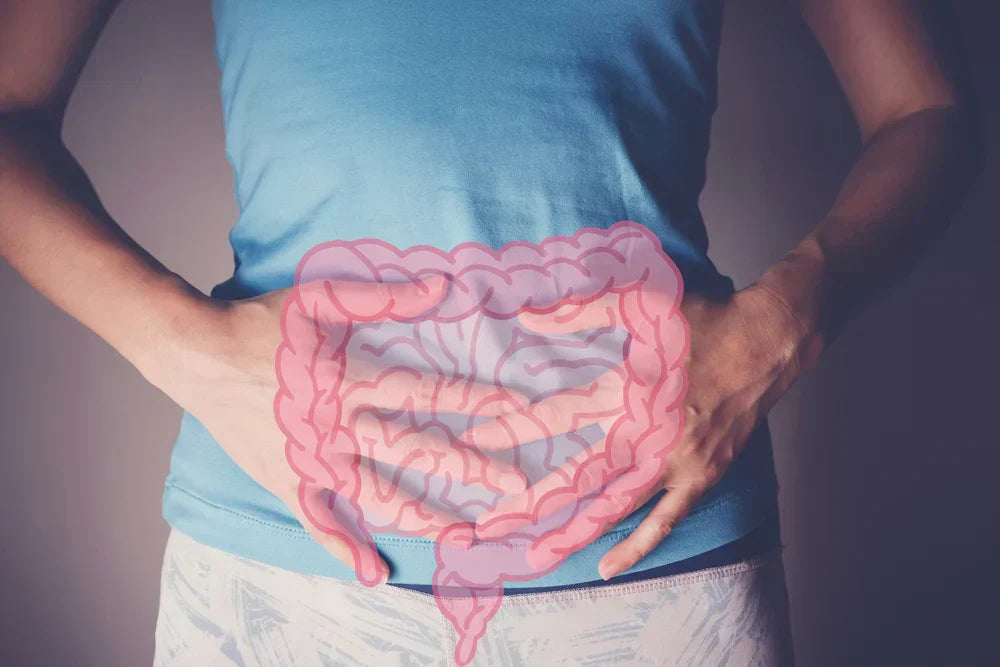Your gut health affects more than just digestion–it directly impacts your overall health. Your gut contains a balance of good bacteria that contributes to the health of a number of body systems, including digestion, immune system, mental health, and more. When these bacteria become imbalanced, you will likely experience symptoms. Here’s a list of the most common signs of poor gut health that may indicate you need to take steps to improve your gut.
1. Bloating, Gas, and Stomach Pain
One of the most common signs of poor gut health is stomach disturbances. These may include bloating, gas, stomach pain, diarrhea, constipation, and heartburn. This is because an imbalance in your gut can cause your digestive system to have difficulty processing certain foods and eliminating waste.
2. Weight Fluctuations

Are you gaining or losing weight without making changes to your eating habits or physical activity? Unintentional weight fluctuations can be a sign of poor gut health. An unhealthy gut can affect your body’s ability to properly absorb nutrients, store fat, and regulate blood sugar, which can result in slowly gaining or losing weight.
3. Skin Problems
Does your skin tend to break out when you consume certain foods such as saturated fats or refined sugars? These kinds of foods have been found to promote an imbalance of gut bacteria. This is why some skin issues can be linked to poor gut health. An imbalance in your gut can contribute to certain skin problems such as eczema, acne, psoriasis, rosacea, and dandruff.
4. Fatigue or Sleep Disturbances

Your gut is responsible for producing much of your body’s serotonin, which is a chemical that affects sleep and mood. This means poor gut health can interfere with your body’s sleep rhythms, leading to fragmented sleep or shortened sleep duration. These sleep disturbances may also be due to the connection between gut health and inflammation, metabolic function, and mental health. So, struggling to sleep or sleeping too much can both be signs of poor gut health.
5. Mood Issues
As mentioned above, the gut is associated with the production of serotonin, which helps stabilize mood and emotions. There are additional links between the gut and mental health as well. For example, many individuals with irritable bowel syndrome also have anxiety, depression, or sleep problems. It is common for anxiety disorders and depression to be associated with gastrointestinal issues.
6. Sugar Cravings

Different bacteria in your gut feast on different foods. Some prefer carbohydrates or fats while others feed on sugar. If you eat a diet high in sugar and processed foods, you’re encouraging the overgrowth of one type of bacteria over the others. This can lead to an imbalance in your gut as the sugar-loving, inflammation-causing bacteria take over. This will then cause you to crave more sugar, thus perpetuating the cycle.
How to Improve Gut Health
If you notice one or more of these signs of poor gut health, there are a few things you can do to help improve it. Simple steps you can take to improve your gut health include:
- Eating nutrient-rich foods
- Drinking plenty of water
- Exercising regularly
- Managing stress
- Getting enough sleep
However, sometimes symptoms may persist or even worsen over time, indicating that there could be an underlying issue. If that’s the case, you may require tests or screenings to determine if there may be food allergies or a chronic disease present.
Gut Health Testing at Hickory Drugs
Now you know what signs to look for that may indicate if you have poor gut health as well as what you can do to improve it. If you think you may be having gut health issues, you don’t need to guess. Here at Hickory Drugs, we offer gut health testing that can help you better understand your gut health and overall wellness. We will guide you and monitor your progress using an individualized plan to bring you back to optimal levels. If you’re ready to feel more energized and achieve better health, reach out to us to learn more about improving your gut health today!

